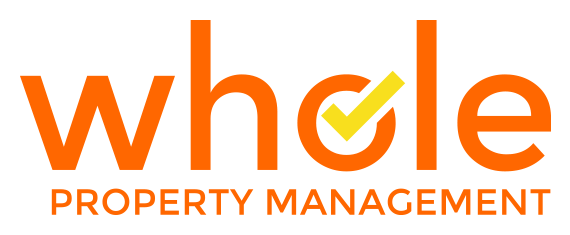How to Know if Your Rental Meets Safety Standards
There are many rules and regulations property owners must comply with when renting out a property. This includes landlord-tenant laws, the Fair Housing Act, and safety and building codes. Maintaining your rental property in safe and sanitary conditions is crucial. Failing to do so can result in hefty fines, early lease termination, and even lawsuits.
Additionally, ensuring that your rental property meets safety standards can help you retain long term tenants. It can also help you preserve and increase the value of your investment over time. Ensuring that your rental complies with safety regulations doesn’t have to be overly complicated!
Here are the best ways ensure your property comply’s with safety standards!
Ensure Legal Compliance
In order to ensure your rental property meets your safety standards, you must familiarize yourself with your local regulations. This may include the following things:
- Ensuring the property is structurally sound
- Ensuring that all water, electrical, and heating systems are in working condition
- Installing CO2 and carbon monoxide detectors
- Ensuring the property is free of pests and mold

Building, health, and safety codes vary widely from state to state. To learn the specifics, you should take the time to familiarize yourself with your local housing regulations, including building and safety codes.
These laws will outline the basic standards your rental should comply with, covering aspects like structural integrity, sanitation, and essential services.
Prevent Fire Hazards
Fires are a huge danger to your tenant’s lives, as well as your property’s structural integrity and overall value. As a landlord, you should actively work to reduce the risk of fire hazards. To do so, you can do the following things:
- Keep fire extinguishers accessible in key areas like the kitchen.
- Store flammable materials safely, away from heat sources.
- Maintain appliances and heating systems to prevent malfunctions.
- Tell tenants to avoid overloading electrical outlets.
- Replace any damaged cords or outlets promptly.
- Create a fire escape plan and ensure tenants practice it frequently.
- Regularly inspect and clean chimneys and vents to prevent blockages and potential fires.
- Install smoke detectors in bedrooms, kitchen, and common areas. After installing them, you should also change the batteries and ensure they’re working correctly frequently.
Inspect The Electrical Systems
Electrical systems in poor condition can cause fires and other safety hazards. To keep your tenants and your investment safe, you must take the time to inspect all electrical systems on your property regularly. Keep an eye out for any damaged or exposed wiring, as well as for signs of overloading in the electrical panel.

If a tenant ever complains about a faulty outlet or any other electrical issues, contact a licensed professional to assess and address the issue promptly. Acting quickly can prevent minor issues from escalating further, reducing the risk of hazards and ensuring compliance with safety standards.
Ensure The Property Has a Running Water Supply
Providing a reliable water supply is one of your biggest responsibilities as a landlord. After all, providing access to running water is crucial for your tenants’ well-being. That’s why you should take the time to inspect your rental for leaks, clogs, and other plumbing issues.
Addressing plumbing issues promptly will prevent water damage and mold growth in your rental, ensuring it complies with health and safety regulations.
Structural Integrity
Failing to ensure structural integrity can lead to safety hazards, such as collapsing roofs or walls.
To avoid these problems, you should conduct regular property and walk through inspections, focusing on the foundation, walls, roof, and support beams. Keep an eye out for cracks, water damage, or signs of deterioration. landlords need to ensure that they respond to emergent and non emergent maintenance requests.
Address any repairs promptly to prevent minor issues from becoming major problems. And don’t forget to keep detailed records of every inspection, maintenance, and repair for future reference.
Secure All Entry Points
In addition to ensuring your property is structurally sound and in sanitary conditions, you should also ensure it’s safe for tenants. Start by ensuring that all entry points, such as doors and windows, lock correctly. This can go a long way in reducing the risk of break-ins.

Landlords should also consider investing in safety measures such as deadbolts, sturdy window locks, security cameras, motion-activated lights, and smart locks. This will help keep your property safe and secure, providing peace of mind to tenants.
Invest in Preventive Pest Control
Pests contaminate living spaces with droppings, allergens, and bacteria, posing major health risks to its inhabitants. Unattended pest infestations can lead to unsanitary living conditions, as well as cause serious property damage. In order to comply with sanitary codes, you must ensure your property is always pest-free.
To prevent infestations, you must regularly inspect your rental property for signs of pests. If you or your tenants ever come across signs of an infestation, hire a professional to deal with the problem as quickly as possible.
Bottom Line
As a landlord, it’s your responsibility to provide safe and sanitary living conditions to tenants. This includes ensuring that the property is structurally sound, providing basic services such as electricity, a running water supply, and regularly inspecting and maintaining the property.
By doing this and familiarizing yourself with your local regulations, you’ll be able to ensure your rental complies with safety standards.
If you are not sure whether your Denver rental complies with local safety standards? Contact Whole Property Management today! We can help you with everything from inspecting your property to dealing with repairs and pests.
